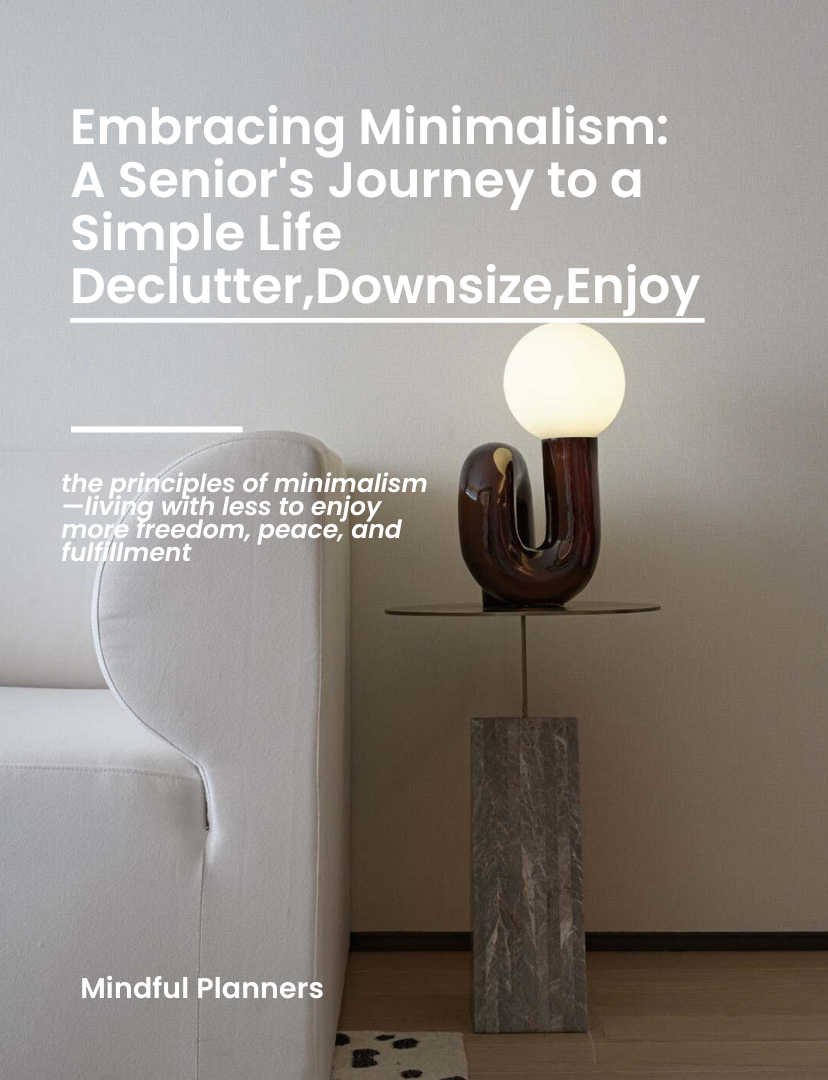For seniors, minimalism can be a liberating and practical approach to living that focuses on simplifying life by reducing possessions and focusing on what truly matters. At its core, minimalism for seniors is about eliminating unnecessary clutter, which can be physical (like excess belongings), mental (such as overcommitment to activities), or emotional (holding on to past regrets or worries). This simplification can lead to a safer, more comfortable living environment, and promote a sense of peace and well-being.
Benefits of Minimalism for Seniors
Reduced Physical Clutter: Less clutter means a tidier living space, which reduces the risk of falls and makes daily activities easier.
Increased Safety: Fewer items in the home can also reduce fire hazards and improve overall home safety.
Enhanced Mental Clarity: A decluttered space can lead to a decluttered mind, reducing stress and anxiety.
Simplified Living: Having fewer possessions to worry about can make it easier to maintain a home, especially for those with mobility issues or health concerns.
Focusing on What Matters: Minimalism encourages focusing on hobbies, activities, and relationships that bring joy and fulfillment.
How to Achieve Minimalism as a Senior
Assess Your Needs: Carefully consider what items you truly need and use regularly. Everything else can be categorized for disposal, donation, or giving away to family and friends.
Declutter Gradually: Start with one area or category at a time (like clothing, kitchen items, or photographs) and work through your home systematically. Avoid trying to declutter your entire home at once to prevent feeling overwhelmed.
Prioritize Safety and Comfort: When deciding what to keep, prioritize items that contribute to your safety, comfort, and well-being.
Limit New Acquisitions: Adopt a mindful approach to purchasing, focusing on necessity rather than impulse or convenience.
Digitize What You Can: Convert physical items like photos, documents, and music to digital formats to reduce physical clutter without losing precious memories.
Seek Help When Needed: Don’t hesitate to ask for help from family, friends, or professional organizers, especially for physically demanding tasks.
Adopt a Maintenance Routine: Once you’ve decluttered, establish a regular routine to reassess your possessions and prevent clutter from accumulating again.
Embrace the Lifestyle: Minimalism is more than just a one-time decluttering effort; it’s a lifestyle choice that emphasizes living with less to enjoy life more fully.
Focus on Experiences: Shift the focus from material possessions to experiences, such as spending time with loved ones, traveling, or pursuing hobbies.
Be Patient with Yourself: Transitioning to a minimalist lifestyle can take time, especially if you’re used to being surrounded by many possessions. Be patient and kind to yourself throughout the process.
Achieving minimalism as a senior is not about living without; it’s about making room for more of what truly enriches your life. By focusing on simplicity, safety, and the essentials, minimalism can help seniors live more comfortably and joyfully.
Enjoy my Ebook





